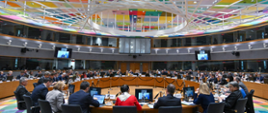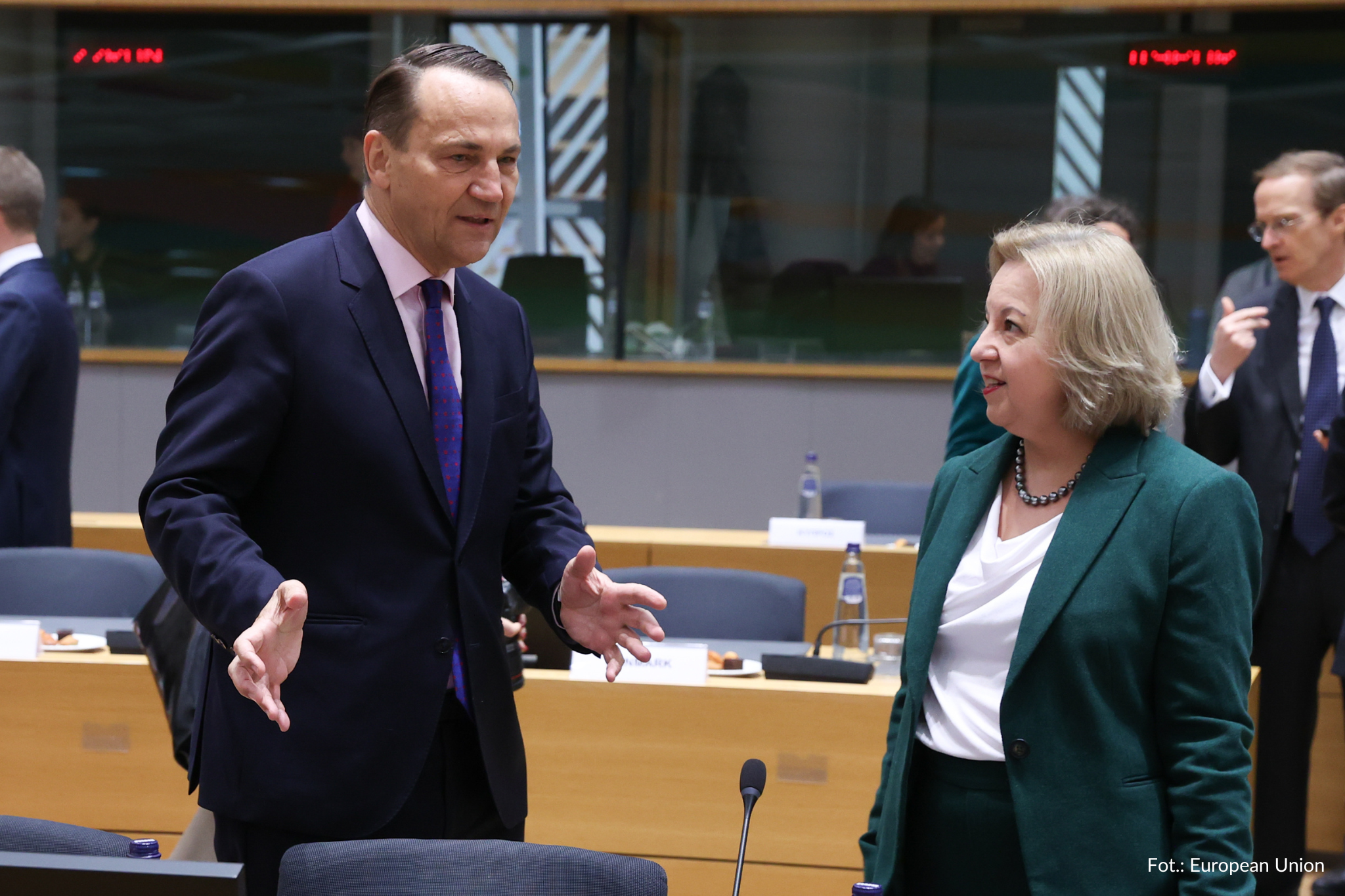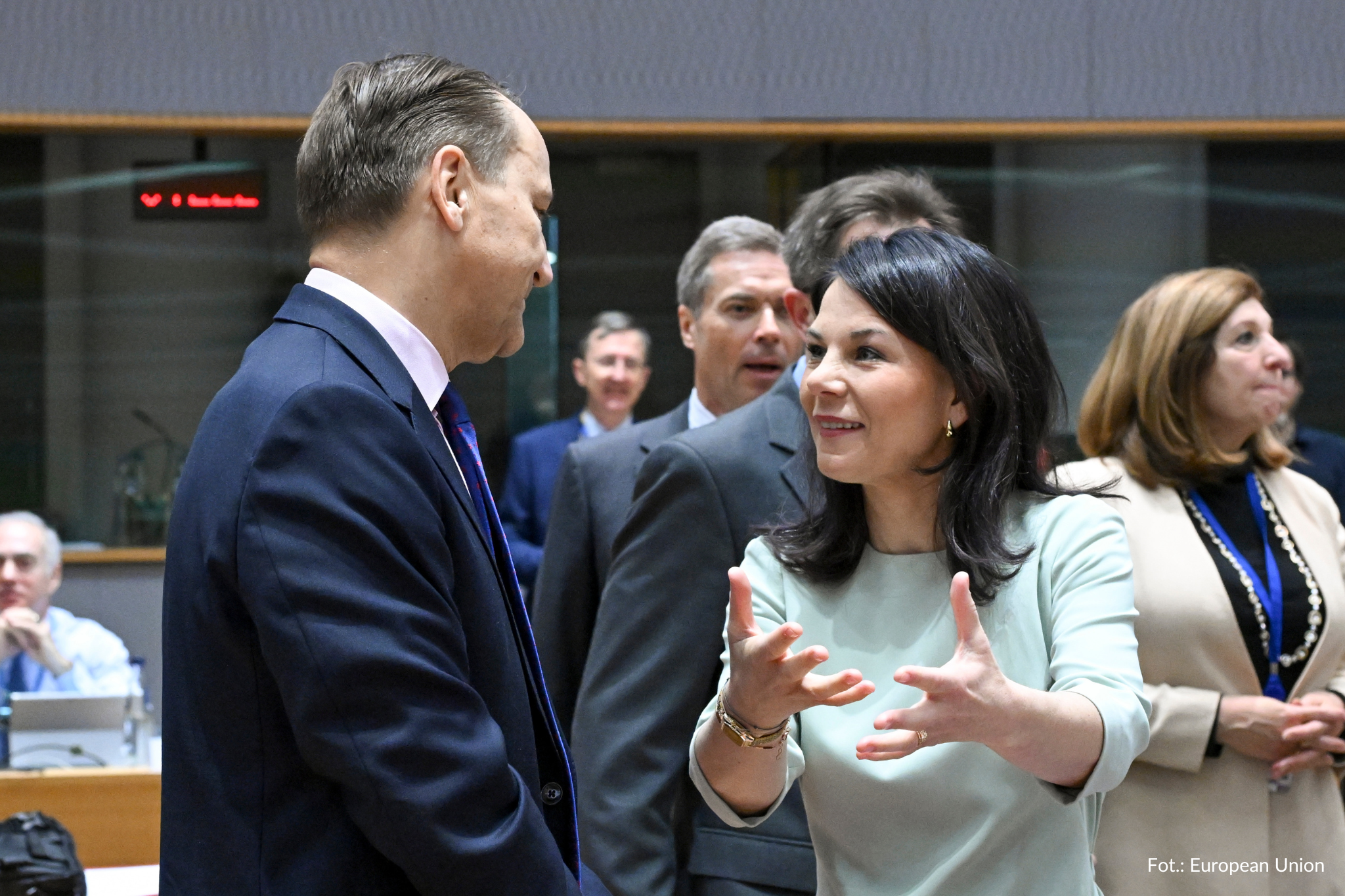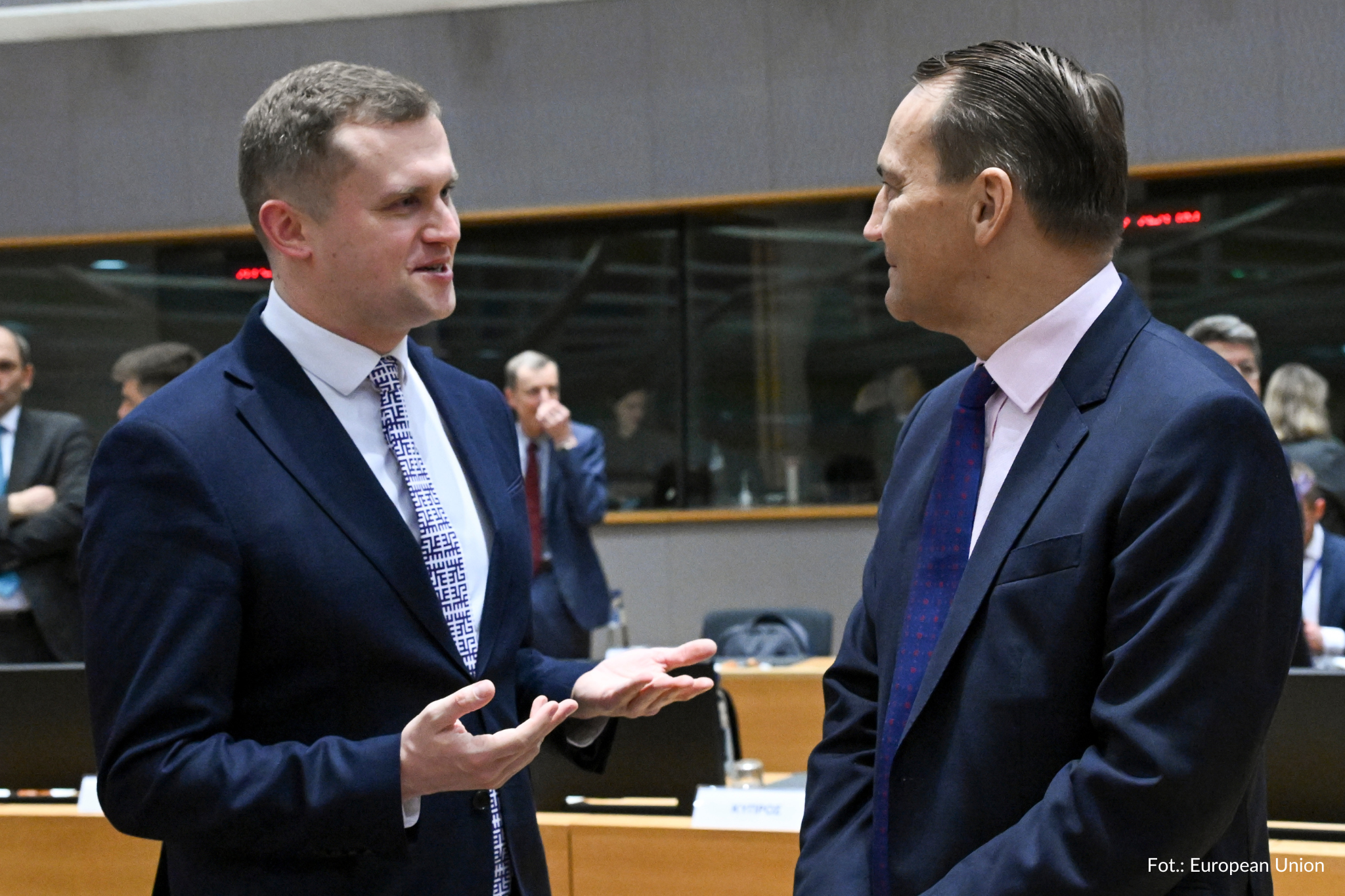Poland’s Foreign Minister Radosław Sikorski takes part in Foreign Affairs Council meeting
17.03.2025
Russia’s aggression against Ukraine, the situation in the Middle East and in Syria, Iran, and EU-US relations were the main points of a Foreign Affairs Council (FAC) meeting in Brussels on Monday. The session was chaired by the High Representative of the Union for Foreign Affairs and Security Policy Kaja Kallas.

The discussion on Russia’s aggression against Ukraine started with a standard call with Ukraine’s Foreign Minister Andrij Sybiha on the outcome of Ukraine-US talks in Jeddah, among other issues. Minister Radosław Sikorski underlined that the decisions which are being made now will impact not only the future of Ukraine but also the global position of Europe. He noted Poland’s firm position on Ukraine: European Union must maintain sanctions pressure as well as political, economic, and military support for Ukraine in its struggle against Russian invasion. An important element of support for Ukraine is enhancing Europe’s own defence capacity, in line with the decisions of the European Council of 6 March.
Poland’s top diplomat also called on Hungary to unlock accession talks with Ukraine, which was backed by many other member states.
In a discussion on the Middle East, the heads of diplomacy voiced their concerns over both Israel and the US rejecting a post-war reconstruction and management plan for Gaza, presented at the League of Arab States summit in Cairo in early March.
As regards Syria, Minister Sikorski supported the policy of gradual lifting of sanctions and establishing constructive relations with the country’s new authorities. Syria’s stability is currently the top priority. He also stressed the importance of protection of rights of all citizens, whatever their ethnicity or religious affiliation.
In light of Iran's increasing cooperation with Russia, the head of the Polish MFA indicated that Iran remains a source of regional tensions, but Poland and the EU should maintain open channels of communication with Iran in order to de-escalate them.
In a discussion on EU-US relations, the head of Polish diplomacy referred to the significant change in US rhetoric and actions towards Ukraine and Europe and pointed out that it was necessary to strengthen the EU's position on the international stage, which would be helped by the implementation of the European Council's guidelines on increased security and defence spending.
After the Council session, Brussels IX Conference was held on: “Standing with Syria: meeting the needs for a successful transition”.
Minister Sikorski also met with the Foreign Ministers of Syria Asaad Hassan Al-Shaibani, Lebanon - Youssef Raggi, Jordan - Ayman Safadi, and of Spain - José Manuel Albares.
Photos: European Union





